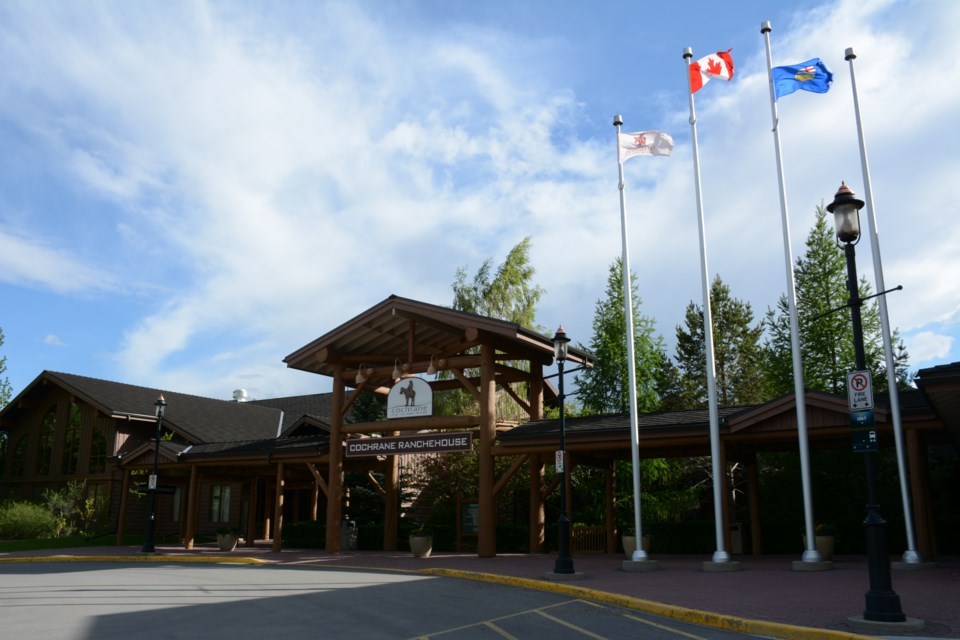COCHRANE— The need for affordable housing now and in the future was front and centre at last Monday's regular council meeting.
Housing coordinator Corinne Burns was on hand at the Nov. 23 regular council meeting to share the latest findings of the 2020 Community Housing Needs Assessment with council.
The key findings of the research show Cochrane is a fast-growing community, residents are ageing, a greater diversity of housing options is needed, lower-income renters need non-market housing options, partnerships are required to deliver housing and transitional and short-term housing options are needed throughout the community.
"The data supported what we were hearing from stakeholders and from service providers and from people with lived experience," Burns said.
The study saw 224 people respond to the Cochrane Homelessness Estimation Survey and 272 people respond to the Cochrane Housing Needs Assessment. They also hosted four focus groups and seven telephone interviews.
The data will serve as a guide to shaping the landscape of affordable housing in Cochrane and can be used to address key housing gaps to create unique solutions through collaboration, Burns said. They used data from StatsCan and speaking with members of the community to understand the need for affordable housing in Cochrane.
Burns noted the data featured in the assessment is from 2016 and in her opinion the need has only grown over the past four years.
She noted that between 2011 to 2016 Cochrane grew by 47 per cent. Rapid growth is expected to continue with an estimated 52,210 people living in the town by 2046. In that time the greatest population growth is anticipated to be couples without children who are expected to increase by 138 per cent, and the lowest growth is expected to be couples with children at 89 per cent.
The assessment revealed over time the average household size has slightly decreased from 2.8 people in 2006 to 2.6 people in 2016. The average dwelling in Cochrane was valued at $465,460 as of 2016.
The study indicated that there are 1,380 renter households in the community as of 2016 with the average cost of rent per month hovering around $1,050 in 2018.
When talking about the affordability of housing the conversation is centred on the cost of having a roof over one's head— Anything that requires more than 30 per cent of an income is considered un-affordable.
In Cochrane 17 per cent of households spend more than 30 per cent of their income on shelter costs— 14 per cent of these are homeowners and 36 per cent are renters.
The Cochrane Homelessness Estimation Survey saw 58 per cent of participants indicate their current housing situation is unstable or they could easily lose their housing.
The Housing Needs Assessment survey results saw the top reasons people face housing challenges is because they cannot find safe, suitable, stable housing that is affordable.
Currently, there are 62 residents in affordable housing units in Cochrane. Statistics show that typically around 80 per cent of residents move out of these homes within five years. Burns noted they have not formally tracked where they go but the majority appear to stay in Cochrane.
Now that the assessment is completed the next step is forming a strategy and confirming the roles different groups can play in addressing housing needs— These include landowners, all levels of government, developers and local agencies.
The Town of Cochrane has been using needs assessment to understand and identify gaps in the housing for years, said Mayor Jeff Genung, and this has formed the foundation and framework for the creation of affordable housing.
“It’s really an important tool that I hope will spur developments,” Genung said.
One of the core visions of Town is to make sure Cochrane is a “community for everyone,” Genung said, and a part of this is ensuring everyone has a roof over their head. The coming years will be critical to ensuring they can match those needs.
The information shared on housing affordability will help council and administration understand the needs of the community, while giving them the data needed to push the province for more support, Genung said. He cited the growing need for seniors housing as an example. The study indicated that those who are 85 and above in age will see the highest increase of 379 per cent by 2046.
“It’s about how and where and what we need to be mindful of as we grow ... We need to be aware of and do our best to fill them," Genung said.
Councillor Marni Fedeyko praised the presentation noting the important attention it brought to securing housing for elderly residents.
"I imagine that the high amount of elderly people that might need housing is something that we're all going to face— That's not just our need here," Fedeyko said. "What will be surprising is maybe how many people don't realize that there are a lot of residents that need not only assistance but might not have a place to stay at all."
Coun. Tara McFadden challenged her colleagues to take the information they learned at the meeting seriously and find a way to make affordable housing possible for all community members in need in Cochrane.
She noted one silver lining to the COVID-19 world is that the provincial and federal governments are willing to invest and could be part of the affordable housing solution.
The 2020 Community Housing Needs Assessment will serve as a critical guide to getting things started to meet the needs of Cochranites, McFadden said, noting that service providers are actively working to fill gaps in town.
"It's not just a small segment that needs to have affordable housing," McFadden said. "It's giving us the tools and facts and starting point to dream big. I'm glad we finally have this in our toolbox to make things happen."




